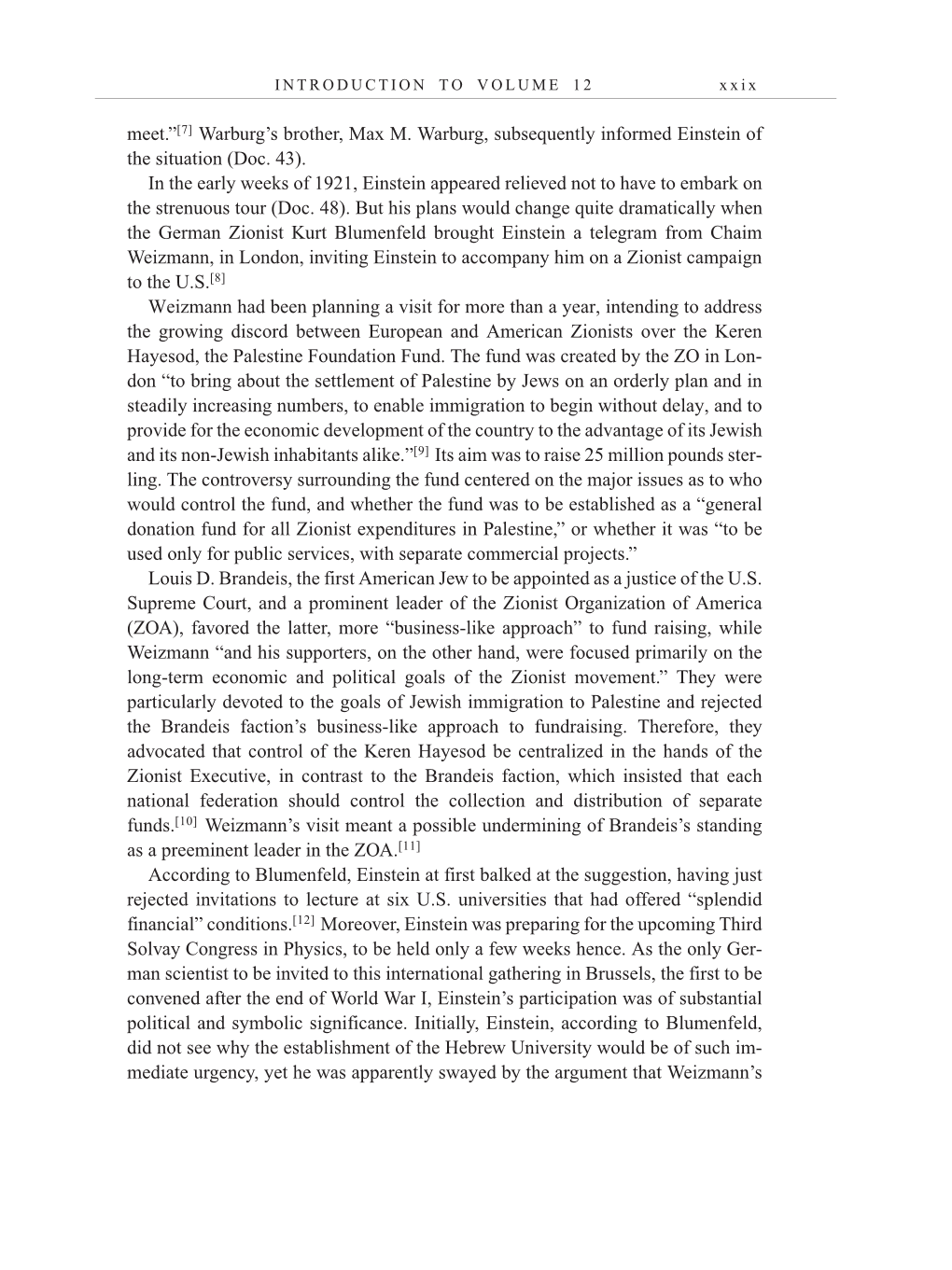I N T R O D U C T I O N T O V O L U M E 1 2 x x i x
meet.”[7]
Warburg’s brother, Max M. Warburg, subsequently informed Einstein of
the situation (Doc. 43).
In the early weeks of 1921, Einstein appeared relieved not to have to embark on
the strenuous tour (Doc. 48). But his plans would change quite dramatically when
the German Zionist Kurt Blumenfeld brought Einstein a telegram from Chaim
Weizmann, in London, inviting Einstein to accompany him on a Zionist campaign
to the
U.S.[8]
Weizmann had been planning a visit for more than a year, intending to address
the growing discord between European and American Zionists over the Keren
Hayesod, the Palestine Foundation Fund. The fund was created by the ZO in Lon-
don “to bring about the settlement of Palestine by Jews on an orderly plan and in
steadily increasing numbers, to enable immigration to begin without delay, and to
provide for the economic development of the country to the advantage of its Jewish
and its non-Jewish inhabitants
alike.”[9]
Its aim was to raise 25 million pounds ster-
ling. The controversy surrounding the fund centered on the major issues as to who
would control the fund, and whether the fund was to be established as a “general
donation fund for all Zionist expenditures in Palestine,” or whether it was “to be
used only for public services, with separate commercial projects.”
Louis D. Brandeis, the first American Jew to be appointed as a justice of the U.S.
Supreme Court, and a prominent leader of the Zionist Organization of America
(ZOA), favored the latter, more “business-like approach” to fund raising, while
Weizmann “and his supporters, on the other hand, were focused primarily on the
long-term economic and political goals of the Zionist movement.” They were
particularly devoted to the goals of Jewish immigration to Palestine and rejected
the Brandeis faction’s business-like approach to fundraising. Therefore, they
advocated that control of the Keren Hayesod be centralized in the hands of the
Zionist Executive, in contrast to the Brandeis faction, which insisted that each
national federation should control the collection and distribution of separate
funds.[10]
Weizmann’s visit meant a possible undermining of Brandeis’s standing
as a preeminent leader in the
ZOA.[11]
According to Blumenfeld, Einstein at first balked at the suggestion, having just
rejected invitations to lecture at six U.S. universities that had offered “splendid
financial”
conditions.[12]
Moreover, Einstein was preparing for the upcoming Third
Solvay Congress in Physics, to be held only a few weeks hence. As the only Ger-
man scientist to be invited to this international gathering in Brussels, the first to be
convened after the end of World War I, Einstein’s participation was of substantial
political and symbolic significance. Initially, Einstein, according to Blumenfeld,
did not see why the establishment of the Hebrew University would be of such im-
mediate urgency, yet he was apparently swayed by the argument that Weizmann’s
